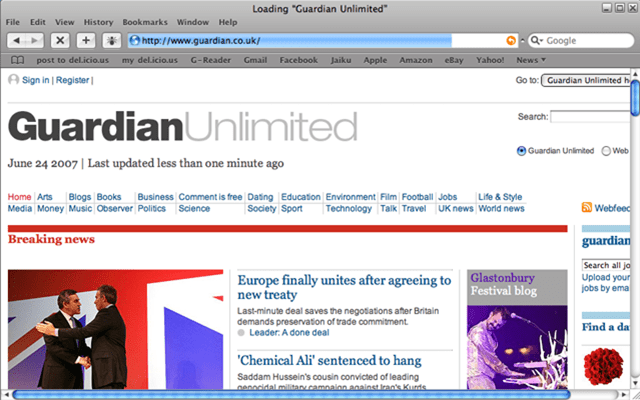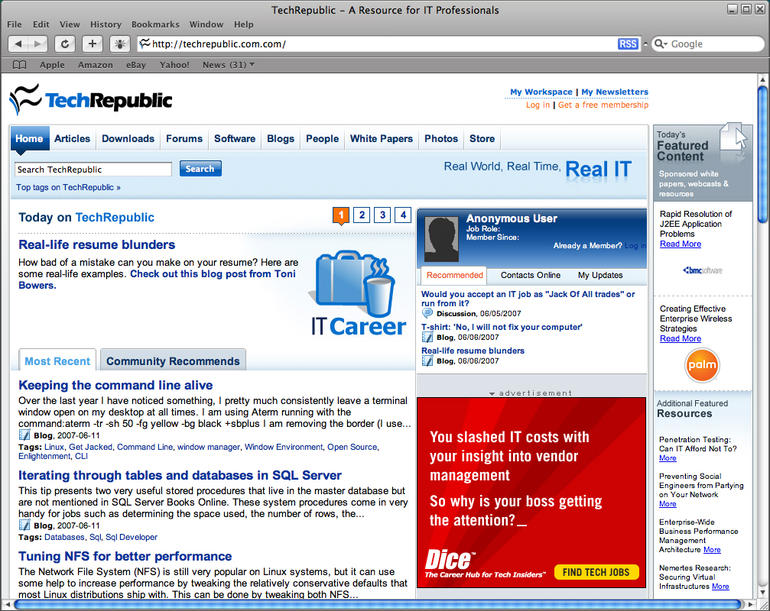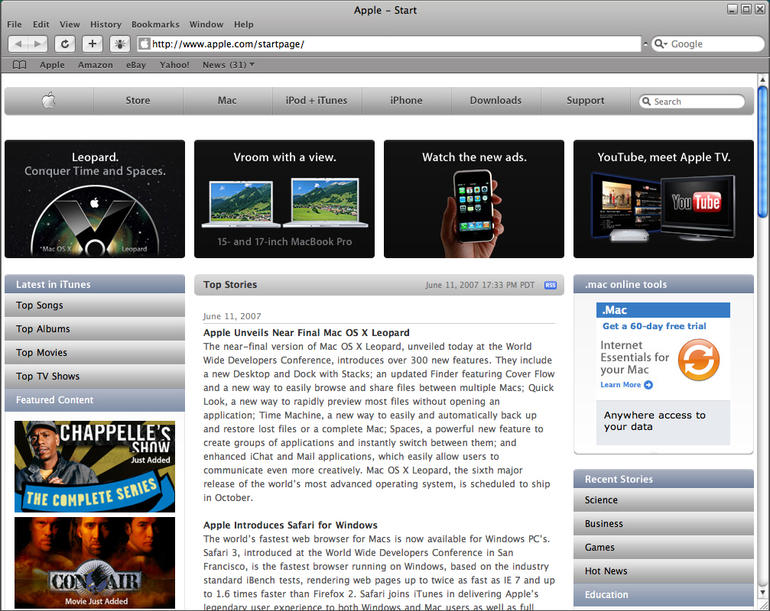On June 11, 2007, Steve Jobs presented the Safari 3 web browser for Windows at WWDC. It was the first time that owners of the most Apple devices could try Safari on computers with the Windows operating system. Apple advertised its internet browser as the fastest and easiest to use browser in the world. Compared to the then still relatively widespread Internet Explorer, it offered up to twice the speed of displaying web pages and promised 1,6 times faster speed than Firefox. But Safari never played on Windows computers.
Making Safari available to owners of non-Apple computers was not the first time that software from Apple's workshop was also available for PCs. In 2003, Steve Jobs agreed to distribute iTunes for Windows, comparing the move to "handing a glass of water to someone in hell".
Chrome competition
Introducing iTunes in a Windows version made sense for a number of reasons. The iPod, whose ownership without iTunes lacked any meaning, ceased to be the exclusive device of Mac owners and its user base expanded worldwide. The percentage of users owning a Windows computer significantly exceeded the percentage of Apple device owners. Extending the Safari browser to a competing platform could therefore be a way for Apple to gain a bit more market share.
“I think Windows users are going to be really excited to see how fast and intuitive web browsing can be with Safari,” Jobs said in a June 2007 press release. we look forward to enabling them to experience a great user experience with Safari as well.”
But Safari and Internet Explorer were not the only browsers on the market. A year later, Google introduced its free Chrome, which was constantly improved with various extensions, and which was available for all major operating systems, including those for smartphones. Opera and Firefox also had their base of supporters, but it was Chrome that managed to achieve the greatest popularity. Why did Safari just fail?
Speed isn't everything
At first glance, there was really nothing to spoil. The browser from Apple offered several useful functions, as the main advantage Apple mentioned lightning speed, it also promoted the SnapBack function, allowing quick access to the default page or perhaps the possibility of browsing the web anonymously. But it was simply not enough for the users. "Who would want to use Safari on Windows?" asked Wired magazine suggestively. "Safari is worthless," Wired didn't take napkins. "Not even many Mac users use it, why would anyone run it on Windows?".
Users have complained about a number of things with Safari, such as a problem accepting plugins or an inability to remember which tabs a user last had open before exiting the browser. There were also complaints about bugs causing the application to crash. It turns out that speed is a great feature, but the success of a web browser cannot be solely based on this aspect.
Safari ran on the Windows platform until May 2012. When Apple released its OS X Mountain Lion operating system, Safari 6.0 for Mac was released at the same time, but Windows users had to do without an update. The option to download Safari for Windows has quietly disappeared from the company's website. After all, the Safari browser has found its use - it has more than half the share of iOS devices.
Do you use Safari on Windows or Mac? If not - which browser did you like?



Definitely Chrome.
A veteran of 90 years, an enthusiast of old-school technologies, a veteran of Apple and Microsoft from the point of view of a user of their products, at one time I had Safari Firefox Netscape on my desktop, today it's Explorer Chrome, I also hate Edge, I don't like it at all :-(